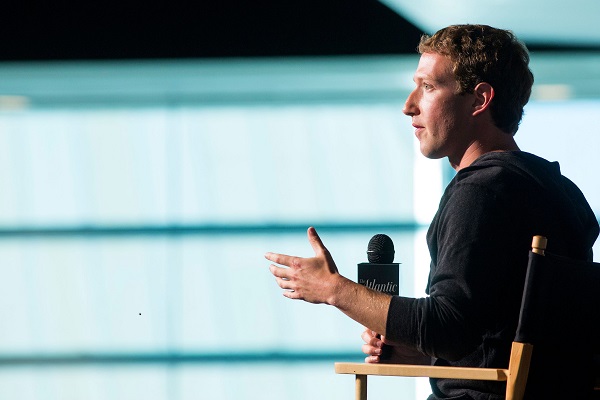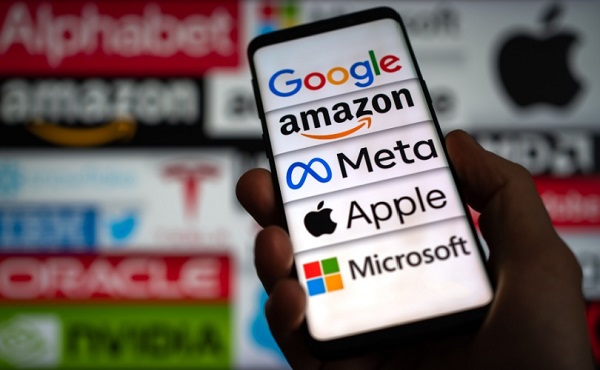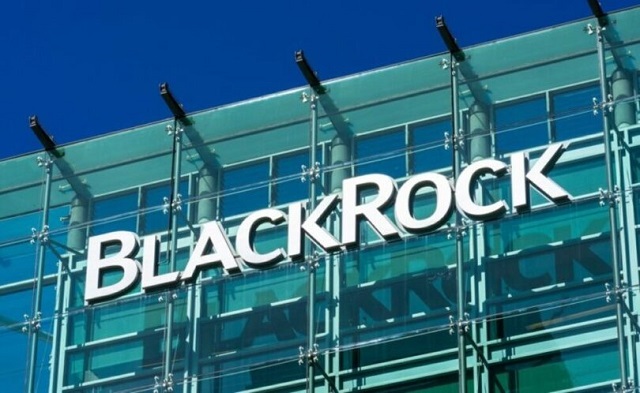Business
You Now Have Permission to Stop Pretending

Why Meta’s decision to abolish DEI might be a turning point
|
|
Last week, Mark Zuckerberg, the CEO of Meta, formerly Facebook, made a stunning announcement. He was abolishing the company’s DEI programs and discontinuing its relationship with fact-checking organizations, which he admitted had become a form of “censorship.” The left-wing media immediately attacked the decision, accused him of embracing the MAGA agenda, and predicted a dangerous rise in so-called disinformation.
Zuckerberg’s move was carefully calculated and impeccably timed. The November elections, he said, felt like “a cultural tipping point towards once again prioritizing speech.” DEI initiatives, especially those related to immigration and gender, had become “disconnected from mainstream conversation”—and untenable.
This is no small about-face. Just four years ago, Zuckerberg spent hundreds of millions of dollars funding left-wing election programs; his role was widely resented by conservatives. And Meta had been at the forefront of any identity-based or left-wing ideological cause.
Not anymore. As part of the rollout for the announcement, Zuckerberg released a video and appeared on the Joe Rogan podcast, which now functions as a confessional for American elites who no longer believe in left-wing orthodoxies. On the podcast, Zuckerberg sounded less like a California progressive than a right-winger, arguing that the culture needed a better balance of “masculine” and “feminine” energies.
Executives at Meta quickly implemented the new policy, issuing pink slips to DEI employees and moving the company’s content-moderation team from California to Texas, in order, in Zuckerberg’s words, to “help alleviate concerns that biased employees are excessively censoring content.”
Zuckerberg was not the first technology executive to make such an announcement, but he is perhaps the most significant. Facebook is one of the largest firms in Silicon Valley and, with Zuckerberg setting the precedent, many smaller companies will likely follow suit.
The most important signal emanating from this decision is not about a particular shift in policy, however, but a general shift in culture. Zuckerberg has never really been an ideologue. He appears more interested in building his company and staying in the good graces of elite society. But like many successful, self-respecting men, he is also independent-minded and has clearly chafed at the cultural constraints DEI placed on his company. So he seized the moment, correctly sensing that the impending inauguration of Donald Trump reduced the risk and increased the payoff of such a change.
Zuckerberg is certainly not a courageous truth-teller. He assented to DEI over the last decade because that was where the elite status signals were pointing. Now, those signals have reversed, like a barometer suddenly dropping, and he is changing course with them and attempting to shift the blame to the outgoing Biden administration, which, he told Rogan, pressured him to implement censorship—a convenient excuse at an even more convenient moment.
But the good news is that, whatever post hoc rationalizations executives might use, DEI and its cultural assumptions suddenly have run into serious resistance. We may be entering a crucial period in which people feel confident enough to express their true beliefs about DEI, which is antithetical to excellence, and stop pretending that they believe in the cultish ideology of “systemic racism” and race-based guilt.
DEI remains deeply embedded in public institutions, of course, but private institutions and corporations have more flexibility and can dispatch with such programs with the stroke of a pen. Zuckerberg has revealed what this might look like at one of the largest companies. Conservatives can commend him for his decision, while remaining wary. “Trust but verify,” as Ronald Reagan used to say, is a good policy all around.
Christopher F. Rufo is a reader-supported publication. To receive new posts and support my work, consider becoming a free or paid subscriber.
Business
Instead of innovating themselves, Europeans trying to regulate US companies to death


From the Daily Caller News Foundation
By
Envy is an ugly thing — one of the seven deadly sins.
The Europeans have long been dripping with jealousy that American firms dominate the tech sector — cell phones, search engines, social media platforms, AI and robotics.
As a consequence, the U.S. economy as measured by net worth is now 50 percent larger than Europe’s and even the residents of our poorest states like West Virginia have a higher income than the average European.
One reason: The United States innovates while Europe regulates. Instead of fixing their economies in Euroland, the EU bureaucrats want to kneecap America’s tech success stories with fines and lawsuits and regulatory barbed wire fences to keep American firms from competing on a level playing field.
A case in point is the rash of expensive antitrust lawsuits against Google search engines.
Even worse is that a few years ago the European Union enacted “the Digital Markets Act” under the guise of trying to “ensure contestable and fair markets in the digital sector.”
Whenever government officials talk about promoting “fairness,” it means they are looking for expanding their own power.
Under this Act, Europe’s regulators are seeking to rein in successful technology companies like Apple through a new regulatory principle called “interoperability.”
Interoperability calls for third-party developers throughout the world to be given access to Apple’s private operating systems — iOS and iPadOS. In this framework, Apple is treated like a public utility with features that can be leveraged by other companies.
This is a sore-loser concept. Apple is a highly dynamic company that has achieved its market-leading status by developing wildly popular trailblazing products.
The European regulations, could require iPhones to offer competitor products. This makes as much sense as requiring McDonalds to offer Burger King fries with their “happy meals.”
The iPhone amenities and apps are part of a package deal that have made these devices the most popular in the world with billions of customers. This hardly sounds like monopolistic behavior. For people who don’t like Apple’s aps, there are many other cell phone products, such as Galaxy that consumers can turn to made by T-Mobile, Google, or a handful made in China.
For all the talk about Apple’s monopoly, they now control slightly less than 20% of the global cell-phone market.
Yet Europe’s bureaucrats have declared that Apple cannot charge product developers who are given access to the company’s operating systems. It is like getting to ride the train for free.
Interoperability is a dangerous concept — especially when it comes to security and privacy. Apple places a premium on maintaining the integrity of its devices and protecting its users’ data. But there is no guarantee that third parties given unfettered access to the Apple platform will have the same high standards.
That is going to leave Europe’s users of Apple products at greater risk of getting hacked. The results could be “disastrous,” points out Dirk Auer of the International Center for Law and Economics. “Users’ identity could be leaked, their money stolen, and their data could be compromised.”
Social media companies that want access to Apple’s operating systems could also gain access to I-phone users’ data and information. Apple warns that outsiders could “read on a user’s device all of their messages and emails, see every phone call they make or receive, track every app that they use, scan all of their photos, look at their files and calendar events, log all of their passwords, and more.”
Even Apple doesn’t access this data in order to protect the privacy of their users.
The danger here is that if companies that spend billions of dollars innovating to build a better mousetrap can’t own and control their own products and reap the financial rewards, innovation will be stifled — in which case everyone loses. Sharing patented information with competitors in the name of “fairness” is a socialist idea that has rusted the Eurozone economy.
If Europe wants to get back in the tech game, EU bureaucrats should focus on what made these companies so successful in the first place — and then try to create a public policy environment that will foster innovative companies that can compete and win — rather than run to the courts for protection. Punishing the winners is a good way to keep producing losers.
In the meantime, let’s hope the incoming Trump regulators at the FTC and FCC and the Justice Department defend American companies against aggressive and hostile lawsuits to hobble our made-in-American companies. In other words, put America first and don’t let Europe take a bite out of our Apple.
Stephen Moore is a co-founder of Unleash Prosperity and a co-author of the new book: “The Trump Economic Miracle.”
Business
Canada Suddenly Says It’ll Buy More US Products After Trump Threatened To Slap It With Tariffs


From the Daily Caller News Foundation
By Owen Klinsky
Canada’s ambassador to the United States said Monday the country is prepared to purchase more U.S. goods following President-elect Donald Trump’s tariff threats.
Trump has repeatedly lamented the trade deficit between the U.S. and its neighbor to the north, threatening to levy a 25% tariff against the country or even annex Canada and make it “the 51st state.” His remarks appear to have already impacted trade relations, with Canada’s Ambassador Kirsten Hillman saying the country is ready to buy more from the United States in order to appease the incoming president, according to an interview she gave to The Associated Press Monday.
“He has a negotiating style which involves positioning himself in the best way he can for discussions,” Hillman told the AP. “We are happy to source what we can from the United States.”
Hillman identified military procurements as a potential category where Canada could increase its consumption of U.S. products, including Canada’s next fleet of submarines: “We have some big military procurements coming up for example, replacing our entire submarine fleet. Maybe those are some purchases that can happen from the U.S.”
The U.S. had a nearly $68 billion trade deficit with Canada in 2023, a decrease of $12.2 billion from 2022, according to the Bureau of Economic Analysis. The overall U.S. trade deficit sat at over $770 billion in 2023 — the highest of any country globally.
The ambassador also gave Trump credit for the creation of Canada’s $1 billion-plus border security and immigration plan: “We have moved really quickly, I’ll be honest, because President Trump focused the mind to put together a full package of improvements.”
Border patrol agents apprehended almost 24,000 individuals along the northern border in fiscal year 2024, representing a 140% increase from the year prior, data from the U.S. Customs And Border Protection shows.
“President Trump has promised tariff policies that protect working Americans from the unfair practices of foreign companies and foreign markets,” Trump-Vance Transition Spokesman Brian Hughes told the Daily Caller News Foundation. “As he did in his first term, he will implement economic and trade policies to make life affordable and more prosperous for our nation, while simultaneously leveling the playing field for American manufacturers.”
The Canadian embassy did not immediately respond to requests for comment.
-

 Business2 days ago
Business2 days agoThe problem with deficits and debt
-

 Alberta2 days ago
Alberta2 days agoAlberta’s wildland firefighters are on their way to assist in California
-

 Economy2 days ago
Economy2 days agoFixing the Trudeau – Guilbeault Policy Mess May Take Longer Than We’d Like – Here’s Why
-

 International2 days ago
International2 days agoCalifornia’s Fire Catastrophe Is Largely a Result of Bad Government Policies
-

 Business2 days ago
Business2 days agoBlack Rock latest to leave Net Zero Alliance
-

 City of Red Deer2 days ago
City of Red Deer2 days agoNomination Period Open for Red Deer 2025 Municipal Election
-

 Alberta2 days ago
Alberta2 days agoCommunity Fireguard Program Protecting Canmore and the Bow Valley from wildfires
-

 Also Interesting2 days ago
Also Interesting2 days ago5 things to keep in mind before playing at an online casino







